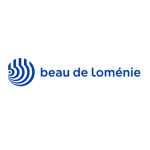Claims of seniority of national trade marks for European marks have the effect of allowing owners, if they cease to maintain local trade marks, to continue benefitting from the same rights they would have had if their national trade mark had been maintained.
In a decision on September 26 2018, the French Supreme Court ruled on a dispute concerning the non-use period to be taken into account when the national trade mark founding the claim of seniority has been abandoned.
In this case, SCEV Champagne Gallo, which was created on April 8 2002, was using the Gallo sign as its corporate name to market champagne. It was sued for trade mark infringement by the owner of a European trade mark GALLO dated April 1 1996 which claimed the seniority of a French trade mark dated August 30 1968 for Classes 32 and 33. On October 6 2015, in a decision issued by the judges of the Paris Court of Appeal, SCEV Champagne Gallo obtained a revocation of the French trade mark due to non-use with effect from August 30 1973 and the cancellation of the European trade mark filed later than the date of the rights SCEV Champagne Gallo held over its corporate name.
The Supreme Court rejected the appellant's argument that, in order to assess the merits of a cancellation action filed against a national trade mark whose seniority is claimed, it is appropriate to treat that trade mark as if it were still in force through the European trade mark: the use of a European trade mark did not save the national registration whose seniority was claimed, and which was not used at the time it was abandoned as a national registration.
Thus holders of national rights should not abandon them even if they claim seniority from them in European trade marks.

|
Aurélia Marie |
Cabinet Beau de Loménie
158, rue de l’Université
F - 75340 Paris Cedex 07 France
Tel: +33 1 44 18 89 00
Fax: +33 1 44 18 04 23











